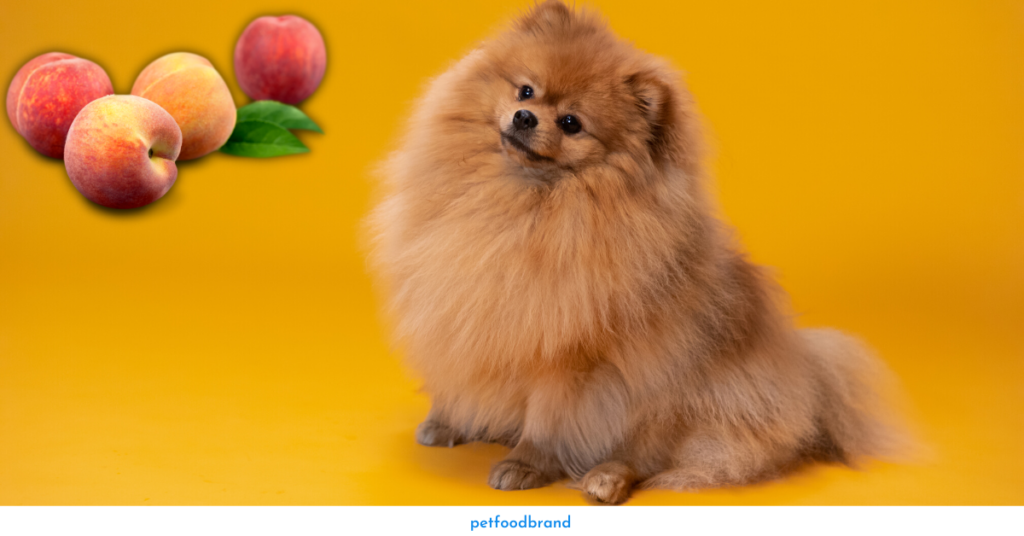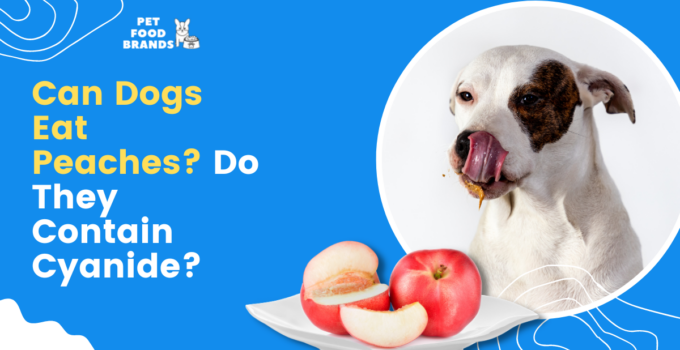Yes, dogs can eat peaches given that you serve the fresh peaches and remove the pit before serving. The pit contains cyanide which is toxic for the dogs. Do not feed canned or preserved peaches as the amount of sugar is high and they might contain artificial preservatives. Make sure to wash the fruit before feeding to rule out any chances of pesticides.
One raw peach contains 50 calories, 15g carbohydrates, 13g sugar, 2 g fiber, and 1g protein. The best thing about peach is 0% cholesterol and sodium.
Health benefits
- Peaches are full of fibers that aid in digestion.
- Vitamin A in peaches is a good supplement for dogs. It helps in vision improvement and bone growth. Moreover, it can easily give them the extra boost of energy they need during the day.
- Carbohydrates are part of a dog’s diet and play a particularly important role in their bodies. Even though carbohydrates aren’t considered essential nutrients for dogs, they’re often mistakenly considered “fillers.” Carbohydrates make a diet highly digestible that keeps your dog healthy & happy.
- Peach is free of cholesterol. Dogs with high cholesterol are at risk for cardiovascular diseases and possibly weight gain because their body is trying to make up for vascular issues. It can also lead to a shorter lifespan & decrease brain activity.
- Peaches do not contain sodium. Overconsumption of salt can be harmful to dogs & lead to dehydration issues. This can cause neurological consequences & other effects such as confusion and lethargy.
Health risks
- One of the dangers of your dog eating a peach is the pit, which is hard and can damage its teeth or jaws.
- A swallowed peach pit can cause a choking hazard to dogs and can cause gastrointestinal obstruction. The serrated edges of a peach pit are also not something that your dog should ingest.
- Your dog can be exposed to high levels of cyanide in the peach pits and this has serious consequences on their health. High levels of cyanide can cause drooling, watery eyes, and vomiting.
- Most canned peaches are full of sugar and chemicals that are bad for dogs. Your dog may experience indigestion, bloating, vomiting, & diarrhea. In the long-term, it risks several health problems like weight gain, obesity, high blood sugar, and diabetes. This is why it’s important to feed your dog healthful foods that provide nutrition instead of sugar.
- As with any food, there is always a small chance your dog will be allergic to peaches. They may lead to a life-threatening condition if this happens but it’s quite rare. If your pet starts vomiting and gets hives or starts coughing, seek medical attention immediately. There may be signs that show your pet might have an allergy to a particular food.
How to feed peaches to dogs?

- You should always ask your dog’s veterinarian before giving them any kind of human food. Some dogs are allergic to certain fruits, so it is best to double-check before you feed them the food.
- Make sure to select or pick fresh peaches that are without mold and rot, then thoroughly wash them, cut them into manageable pieces, and remove pits.
- Peaches can be sliced into small bits to use as a motivational reward during training. You can also mix it with other ingredients for a sweet surprise food or blend it with other healthy salads or smoothies.
- Depending on the size of your dog and its preferences, frozen peaches can be a delicious and refreshing treat in the summer months.
Can dogs eat peach skin?
Sure, dogs can eat some peach skin. It’s a safe part and is generally more digestible. Make sure that you cut it up into pieces so that your dog doesn’t choke.
Can dogs eat mangoes and peaches?
Yes, dogs can eat both mangoes and peaches. Make sure to remove the pits as they pose a choking hazard and contain cyanide.
Can dogs eat cottage cheese and peaches?
Yes, dogs can eat cottage cheese and peaches as both are safe and nutritious.

Ankita is a passionate pet lover and head of content at Pet Food Brands. With her extensive knowledge and research, she provides pet owners with top-quality information on dog food and nutrition. Her dedication to improving the lives of dogs makes her a leading voice in the industry.




